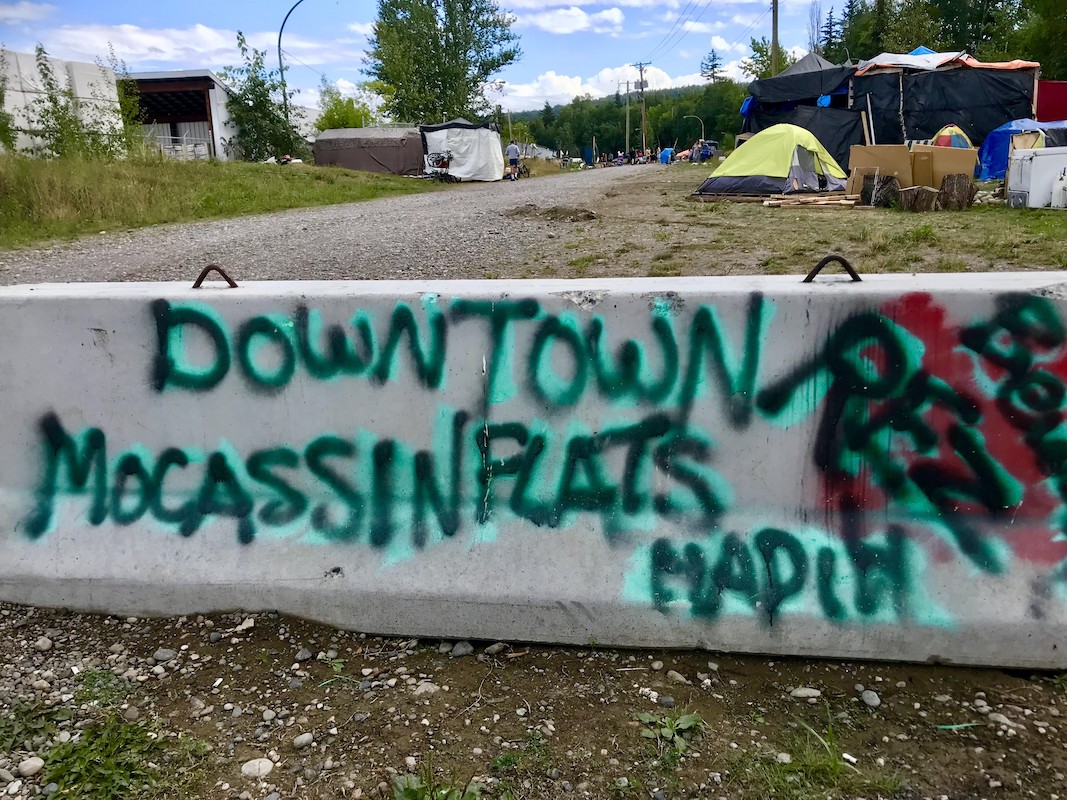Between August 22 and September 2, 2022, the Federal Housing Advocate visited Victoria, Prince George and Vancouver in British Columbia to listen, observe and bear witness to the housing challenges that unhoused and precariously housed people are facing.
This was the Advocate’s first regional visit of her mandate and the first opportunity to meet rights holders in person since her appointment in February 2022.
Housing affordability, homelessness and encampments, and Indigenous housing were frequent subjects of discussion for the people the Advocate met with.
Governments and duty-bearers need to move forward with active collaboration that includes lived experts and other advocates who are developing important solutions.
Unaffordable housing in British Columbia
Census data shows that British Columbia has the highest rates of unaffordable housing in Canada at 25.5% in 2021. The province also has the highest number of renter households. (Statistics Canada)
Areas for action
Listening, learning and giving voice to people’s experiences is a key priority for the Advocate, and much of the visit focused on this goal. It is our job to amplify the opinions, concerns, and proposed remedies of the people we met with and heard from, including rights holders, legal advocates, non-profit sector organizations, and academics.
The opinions and solutions provided to the Advocate serve as testimonies from people with lived experience and contribute to a body of evidence that will support and inform our ongoing work.
So far, the areas for action identified by the Advocate for advancing the human right to adequate housing in British Columbia include measures at all levels of government, such as:
- Improve security of tenure in the province and prevent evictions, including by making improvements to provincial tenancy laws and decision-making processes at the Residential Tenancy Branch.
- Recognize the distinct rights of Indigenous peoples when it comes to housing policies and programs, and include them in the development of new approaches.
- Stop the use of policing and law enforcement to forcibly remove encampments.
- Provide encampment residents access to basic services such as clean water, sanitation facilities, electricity, and heat.
- Improve housing affordability by building the capacity of the non-market housing sector and increasing the percentages of affordable housing in new developments.
- Strengthen tax and anti-speculation measures to combat the financialization of housing.
- Address the intersecting crises of poverty, homelessness, and poisoned drugs by adopting anti-poverty measures and by continuing to target resources and policy measures to evidence-based solutions, such as safe injection sites and safe drug supply.
- Expand housing-related settlement supports for newcomers.
- Allocate funds and other resources to urgently address inadequate habitability conditions in single-room occupancy units (SROs), supportive housing, and on-reserve housing to target immediate health and safety concerns related to ventilation, mold, lack of fire safety, and inadequate cooling.
There is an opportunity for British Columbia’s newly established, standalone housing ministry to take a leadership role in tackling the housing crisis in the province. During the Advocate’s visit, she spoke with Acting Minister of Housing, the Hon. Murray Rankin. Following the Advocate’s visit, she met with the Minister of Housing, the Hon. Ravi Kahlon, in February 2023 in Ottawa, to follow up and discuss observations from the trip and how the province can better uphold the right to adequate housing for all.
Snapshot: Victoria
It was clear that people are falling through the cracks of our tattered safety net. Some are just one accident away from homelessness—including a man we met in Victoria who sustained a workplace injury that ultimately resulted in him living in the encampment in Stadacona Park.
But people also want to be part of the solution. The Advocate met a man in Stadacona Park who bought his own broom so that he could sweep the tennis courts there every day. He took such pride in this act of care for his neighbours so that they could share a clean space together.
Snapshot: Prince George

The Advocate met with residents of the Moccasin Flats encampment in Prince George to hear about their experiences.
Many of the conversations here were around the lack of promised amenities for the encampment, missing and murdered Indigenous women and girls, and how many people who are unhoused felt they had no safe place to go.
The residents here have created a shared timeline of their history, from before the encampment, during the height of the pandemic, to today. The poster is interactive, with residents and guests able to add their own messages.
The Advocate also met with strong local advocates who pushed for community-led solutions, efforts to provide clean drinking water, bathrooms, washing machines, additional community garden space, and innovative and adequate housing solutions for residents.
Encampment residents must have their human rights and their right to housing respected, including to basic services and to be treated with human dignity, and to be meaningfully involved in decisions that affect their lives.
Snapshot: Vancouver
The disparity in Vancouver was obvious: the tent encampment where people are living in Crab Park was silhouetted against a luxury cruise ship in the distance. The Advocate met with residents of the encampment, as well as the residents and advocates of the Downtown Eastside.
We heard from people who are unhoused and precariously housed that are demanding their human right to adequate housing. We also frequently heard about the need for governments to stop the rapid erosion of existing affordable housing from financialization.
We often heard that housing is more than just four walls and a roof. The right to safe, affordable and dignified housing links to so many other aspects of life—to privacy, to have pets, to see family members, to be supported when you need it, to maintain links with one’s Indigenous culture. This is not asking for too much. These are fundamental rights everyone should enjoy.